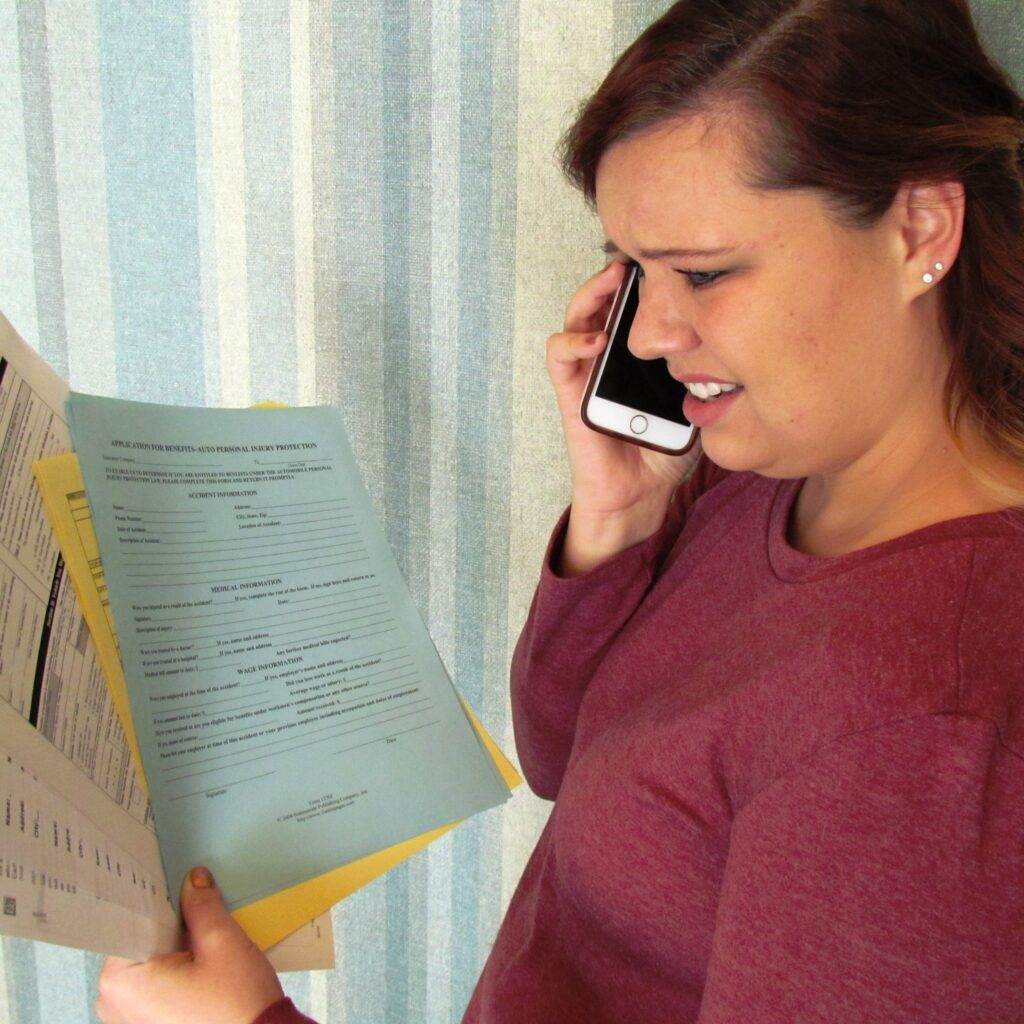
Unless you’re in the insurance claims business you might not know five things never to say to an insurance claims adjuster.
But then it happens. You’re in a car accident. Insurance companies call. You’ve decided to handle it yourself, despite the best advice here on my blog.
Those with attorneys obtain far better results than those who go it alone. That’s documented by the insurance insiders, and more on that later in this article.
Most often, insurance adjusters push you right away to give a tape-recorded statement.
Other times they casually ask whether its OK for them to records your phone conversation.
And … it you think the insurance claims adjuster is out to “trip you up” you’re right. But if you still think you want to talk to the insurance company yourself, here are:
Five Things Never to Say to a Claims Adjuster:
“It came out of nowhere.”
The laws of physics dictate that everything comes from somewhere. When they ask how the accident happened or how far away was the car that hit you when you first saw it, say “it came out of nowhere” and the insurance company writes down “wasn’t looking”.
If you weren’t looking you’re at least partially at fault even if the other driver came out from a stop sign. This is how insurance companies think. It’s called contributory negligence.
“I don’t know how my accident happened.”
True in the absolute most serious accident cases where accident victims become unconscious or worse, they don’t know how it happened. But those who can’t remember details often find things coming back to them if they go back to an accident scene. Think about it. Try drawing a diagram. Perhaps even find another passenger or witness if one was around.
In a slip-and-fall case saying you don’t know how it happened is the end of the case. Unless someone with good memory observed the entire thing and is willing to testify. The injured person, or plaintiff in a legal case, always has the burden of proof. If you offer no explanation for how or why you fell, say goodbye to your case.
“I have a bad memory.”
An insurance company adjuster has a long check list of questions about the accident and will keep asking and asking. Most people find they can’t answer every one for sure. Very likely one detail escapes your current memory. So say that. Be honest. “I remember the accident and how it happened fairly well, but right now I can’t recall that specific detail.”
That’s a lot better than announcing you have a bad memory, calling your own credibility into question for any and all later statements. If the case ends up in a law suit I guarantee your admission of having a bad memory will in fact be used against you in the case.
“I’m fine.”
The adjuster will often ask you how you’re doing. Wanting to be the nice cooperative person you are, you’ll say “I’m fine.” Never mind the fact you just got out of the emergency room and your foot is in a cast. I’ve had people hobble into my office on crutches, and just in a preliminary greeting say “I’m OK”.
With the insurance company, especially in later statements after you’ve done treatment, even extensive treatment for your injuries, and negotiations are going on to settle your case, they’ll throw you a lowball and point out that after the accident you said you were fine.
Even people suffering serious injuries after an accident may not know the full extent of the disability or after effects. Never provide a detailed description of injuries. The residual injury impact may turn out to be worse than you know. Giving a detailed description early on lays the groundwork for unscrupulous insurers to later say why did you leave “X” out? Avoid being pinned down.
“I didn’t see it.”
When they ask about the vehicle that hit you in the accident, “I didn’t see it” yields the same result as “It came out of nowhere”. In other words, say “I didn’t see it” and the adjuster writes down “wasn’t looking.”
Think hard.
“Sure I’ll give you a statement”
If we called this SIX things never to tell the claims adjuster this would be number six. Actually by now we hope you get the point that this is number one, the insurance company hopes you will trip on your own shoelaces during an unrepresented statement. Even more important they plan to use your missteps against you later in the claim.
Five Things Never to Say to an Insurance Claims Adjuster Final Point
People represented by attorneys in injury claims receive settlements up to five times more than those going through the process unrepresented. The same insurance industry consultant who documented that fact also points out that claims adjusters actually receive bonuses for engaging in tactics that reduce the insurance company’s payout on injury claims.
The author of this article, Andrew D. Myers practices personal injury law in Massachusetts and New Hampshire. In addition to the sources listed below, attorney Myers has learned firsthand how damaging an “off the cuff” statement can be when a person injured in an accident tries in good faith to give a simple statement but is unprepared for the claims department whose job it is to reduce the amount the insurance company pays out on any claim.
Model Credit: Jackie Penney
Sources:
Delay, Deny, Defend, Jay M. Feinman.
From Good Hands to Boxing Gloves; The Dark Side of Insurance, David J. Berardinelli.
Motor Vehicle Crashes, Facts & Statistics – Highway Safety, Insurance Information Institute.
Visits: 127




